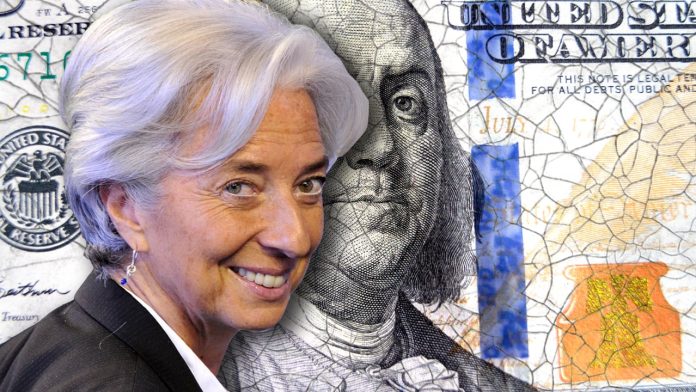There has been much speculation lately about the US government’s debt ceiling and the potential for default. Christine Lagarde, president of the European Central Bank (ECB), has recently expressed her confidence in the US’ ability to meet its obligations, but warned that a default would be a “major disaster”.
Lagarde Discusses US Debt Obligations as Treasury Secretary Yellen Warns of Possible Default Crisis in August/September
The US has accumulated an astounding $31 trillion of debt, with the amount increasing exponentially in the past two decades. In light of this, Janet Yellen, the US Secretary of the Treasury, has said that the government will need to take “extraordinary measures” to pay its debts and that the funds may be exhausted by early June. However, Christine Lagarde, speaking on CBS’ “Face the Nation” on Sunday, expressed her assurance that the US would remain financially stable.
“I have enormous confidence in the United States,” said Lagarde. “I cannot believe that they would allow such a disaster to occur with the US defaulting on its debt. It is not possible. If it did, it would have a very negative impact not only in the US, but worldwide.” She further noted that the US has a responsibility to the nation as a whole and should prioritize the higher interest of the country.
Let’s face it, this is the largest economy. It’s a major leader in economic growth around the world. It cannot let that happen. I understand the politics, I’ve been in politics myself. But there is a time when the higher interest of the nation has to prevail.
The ECB president touched on the growing competition between the US and China, which has been intensifying recently. Lagarde believes that competition is beneficial, as it stimulates innovation and productivity. However, she emphasized that it should not be confrontational, and that conflict between the two countries is not inevitable. Despite her optimism, Politico reports that the US is likely to reach the brink of default in August or September.
Paul Krugman, an economist, recently commented that the US may default on its debt due to the Republican-controlled House of Representatives refusing to raise the debt ceiling. “Who will trust the currency of a nation that appears to have politically lost its mind?” he asked in an opinion editorial. “If that happens, the threat to the dollar’s reserve-currency status will be the least of our problems.”
What are your thoughts on Christine Lagarde’s comments? Share your thoughts about this subject in the comments section below.
Image Credits: Shutterstock, Pixabay, Wiki Commons
Disclaimer: This article is for informational purposes only. It is not a direct offer or solicitation of an offer to buy or sell, or a recommendation or endorsement of any products, services, or companies. Bitcoin.com does not provide investment, tax, legal, or accounting advice. Neither the company nor the author is responsible, directly or indirectly, for any damage or loss caused or alleged to be caused by or in connection with the use of or reliance on any content, goods or services mentioned in this article.

